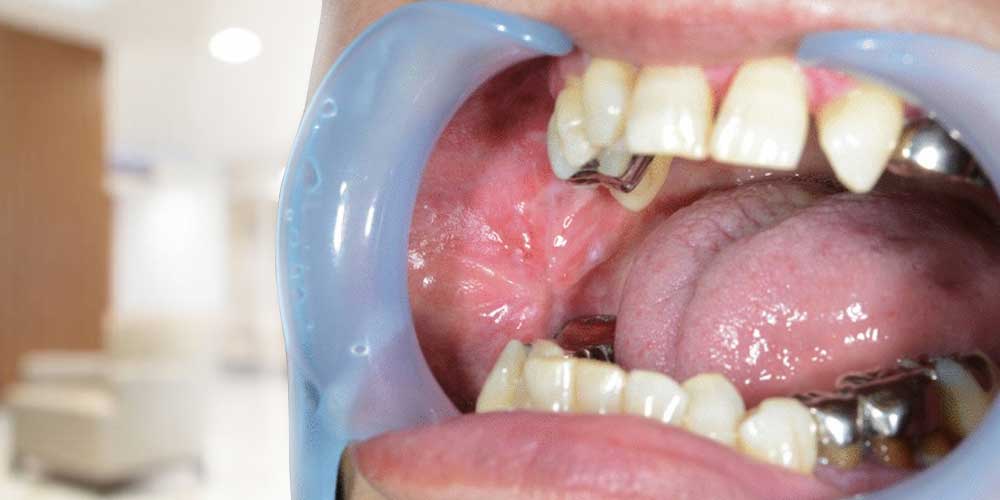Restricted Mouth Opening (RMO) in Delhi, India
Delhi, India is home to one of the highest rates of Restricted Mouth Opening (RMO) in the world. It’s estimated that more than 56 percent of adults are affected by this condition, sometimes known as ‘lock-jaw’. RMO can have a huge impact on daily life, ranging from problems with basic activities like speaking and eating to more complex issues such as social interaction and employment.
What is Restricted Mouth Opening?
RMO is a condition where the mouth cannot open wide. This can be due to a number of reasons, including:
- The muscles and ligaments around the jaw are tight.
- There is an excess of tissue in the mouth.
- The teeth are not aligned correctly.
- The jaw is misaligned.
RMO or restricted mouth opening can cause a number of problems, including:
- Difficulty eating and drinking.
- Difficulty speaking.
- Pain in the jaw, neck, and shoulders.
- Headaches.

Restricted Mouth Opening Causes?
There are many potential causes of RMO, but the most common is due to a build-up of plaque and tartar on the teeth. This can happen for a number of reasons, including poor oral hygiene, not brushing properly, or not flossing regularly. Plaque and tartar can also build up if you eat sugary or acidic foods that promote tooth decay. In some cases, RMO may also be caused by gum disease.
Symptoms of RMO
The symptoms of RMO can vary depending on the underlying cause. In some cases, patients may only experience mild symptoms, while in others, the symptoms can be more severe. The most common symptom of RMO is a feeling of tightness in the jaw muscles and/or a decrease in the ability to open the mouth. Other symptoms can include pain in the jaw, face, or neck; headaches; earache; and/or difficulty chewing or swallowing. If you are experiencing any of these symptoms, it is important to see a dentist or doctor as soon as possible to determine the cause and get treatment.
Treatment for RMO
If you are looking for restricted mouth-opening treatment in Delhi, in India, there are a few options available to you. You can see a dentist, an orthodontist, or a maxillofacial surgeon. Each option has its own benefits and drawbacks, so it is important to consult with your doctor to determine which option is best for you.
Dentists are typically the first line of treatment for RMO. They can prescribe medications to help relieve the symptoms of RMO and can also provide guidance on how to manage the condition. However, dentists may not be able to provide more invasive treatments, such as surgery.
Orthodontists are specialists in correcting dental and skeletal irregularities. They may be able to provide braces or other devices that can help improve the alignment of your teeth and jaws. However, orthodontic treatment can be expensive and may not be covered by insurance.
Maxillofacial surgeons are specialists who treat conditions of the face, mouth, and jaw. They can perform surgery to correct the alignment of your teeth and jaws. This type of treatment is usually reserved for more severe cases of RMO that have not responded to other treatments.
How to Prevent RMO?
There are a few things you can do to prevent RMO:
- Practice good oral hygiene. This means brushing and flossing your teeth regularly and visiting your dentist for regular checkups and cleanings.
- Avoid tobacco use. Cigarettes, cigars, and chewing tobacco can all contribute to RMO.
- Limit your alcohol intake. Drinking too much alcohol can also lead to RMO.
- Eat a healthy diet. A balanced diet that includes plenty of fruits, vegetables, and whole grains is important for overall health, including oral health.
- Get regular exercise. Exercise can help improve circulation, which can help keep the tissues in your mouth healthy
Why Choose Us?
Restricted Mouth Opening (RMO) is a serious issue that needs to be addressed. It can be caused by various factors such as dental decay, improper diet and poor oral hygiene practices. There are several treatments available for RMO but the most important step is early detection and treatment. Early intervention can help reduce the severity of RMO and prevent further complications from developing. At Dr. Bhutani – best dentist in Delhi NCR with proper care and attention, we can together combat this problem of restricted mouth opening and ensure everyone has access to good quality oral healthcare services within their vicinity.
FAQ's
Restricted Mouth Opening is often caused by inflammation of the temporomandibular joint (TMJ) due to injury or stress. Other causes may include jaw muscle spasms, arthritis, misalignment of the bite, and facial trauma. If you’re experiencing restricted mouth opening due to any of these issues, then we suggest visiting a dental professional for an assessment and treatment plan. Consider visiting Dr Bhutani, best dentist in Delhi NCR.
Restricted mouth opening can be treated with exercises, splint therapy, or other restorative treatments. Our team of dentists will assess your condition and provide you with the best treatment option for your individual needs. Depending on the severity of your case, we may recommend a combination of oral exercises and splint therapy to help stretch and relax the muscles in your mouth. We also offer restorative treatments such as crowns, veneers, bridges and implants if necessary. Your dentist will discuss all possible options with you to restore a comfortable mouth opening.
Limited mouth opening, otherwise known as trismus, is when the patient has difficulty opening their jaw beyond a certain point. The normal range of motion for mouth opening should be 40-50 mm or 1.6-2.0 inches. If the patient’s mouth can only open up to 30 mm (1.2 inches) or less, it’s considered limited and they need to see a dental professional.

 FSC India.
FSC India.